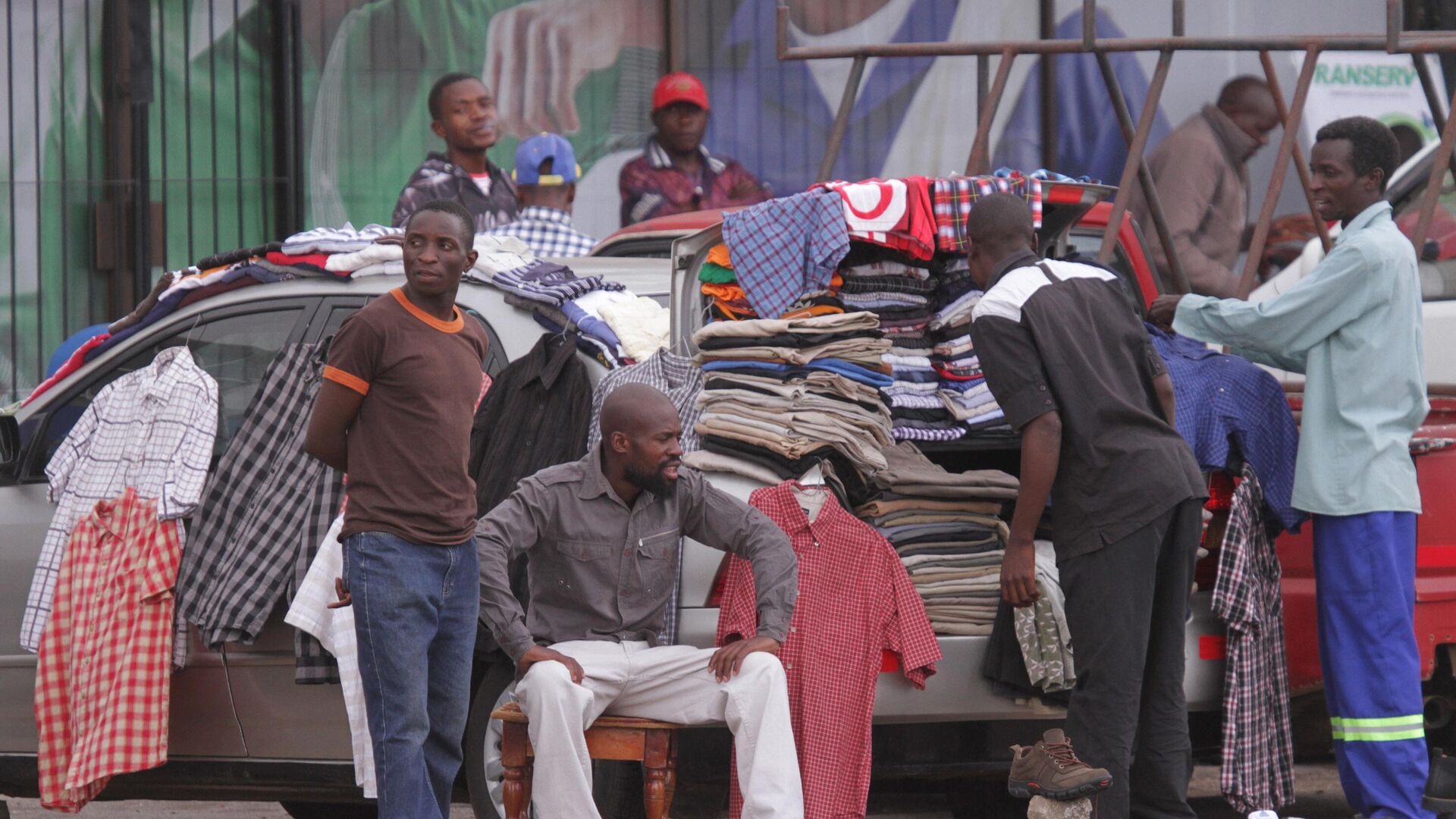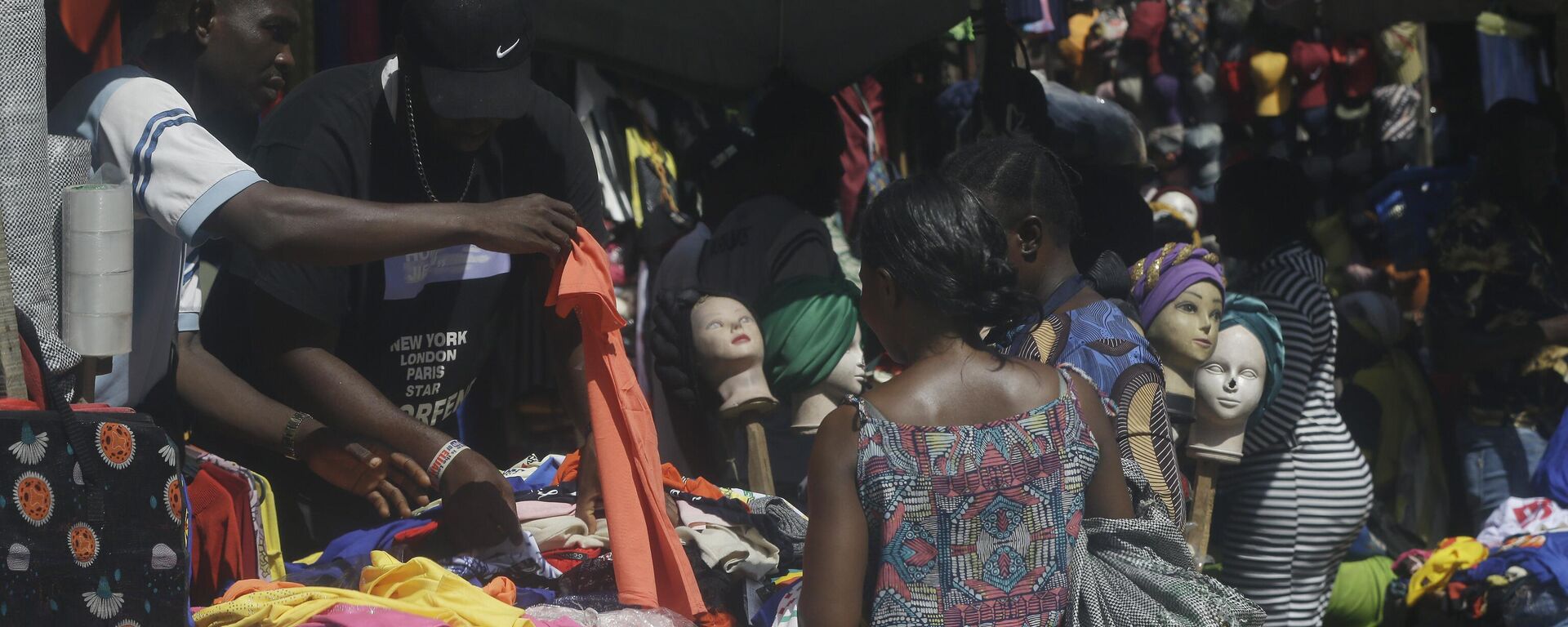https://en.sputniknews.africa/20250124/zimbabwe-battles-second-hand-clothing-trade-1070333088.html
Confiscated Second-Hand Clothing Must Be Incinerated, Says Zimbabwean Official
Confiscated Second-Hand Clothing Must Be Incinerated, Says Zimbabwean Official
Sputnik Africa
Second-hand clothing hasn't just impacted the African clothing and textile industry; it's destroyed it, Nana Addo Tamakloe, founder and CEO of Accra Fashion... 24.01.2025, Sputnik Africa
2025-01-24T10:30+0100
2025-01-24T10:30+0100
2025-01-24T13:38+0100
sub-saharan africa
economy
zimbabwe
southern africa
africa
europe
fashion
industry
https://cdn1.img.sputniknews.africa/img/07e9/01/18/1070333210_0:93:2953:1754_1920x0_80_0_0_40529474cb82722fb780526c0c186168.jpg
Following a clothing factory tour, Zimbabwean Permanent Secretary Tafadzwa Muguti reaffirmed the government's ban on second-hand clothing, emphasized strict measures, and directed the incineration of all confiscated items at government hospitals.Zimbabwe continues its ban on second-hand clothing, ordering provinces to destroy smuggled goods to protect local industry. Despite the 2015 ban, these sales persist due to widespread smuggling, providing livelihoods and attracting consumers with low prices that generate income for unregistered traders.Local textile factories face heavy losses from cheap second-hand imports and unfair competition due to high operating costs. Industry experts link factory closures to this, urging stronger protectionist policies, local media reported.This directive comes amid the rapid growth of Zimbabwe's informal market, where even some formal businesses are trading smuggled second-hand clothing, which poses a health risk.Africa faces a widespread problem with the second-hand clothing trade, leading the AfCFTA to ban it last year. These clothes, largely from Europe due to fast-fashion trends, are considered to be dumped on the continent.
https://en.sputniknews.africa/20250121/africa-drowning-in-wests-fashion-dump-local-textile-industries-struggle-to-stay-afloat-1070238729.html
zimbabwe
southern africa
africa
europe
Sputnik Africa
feedback@sputniknews.com
+74956456601
MIA „Rossiya Segodnya“
2025
News
en_EN
Sputnik Africa
feedback@sputniknews.com
+74956456601
MIA „Rossiya Segodnya“
Sputnik Africa
feedback@sputniknews.com
+74956456601
MIA „Rossiya Segodnya“
economy, zimbabwe, southern africa, africa, europe, fashion, industry
economy, zimbabwe, southern africa, africa, europe, fashion, industry
Confiscated Second-Hand Clothing Must Be Incinerated, Says Zimbabwean Official
10:30 24.01.2025 (Updated: 13:38 24.01.2025) Ekaterina Shilova
Writer / Editor
Second-hand clothing hasn't just impacted the African clothing and textile industry; it's destroyed it, Nana Addo Tamakloe, founder and CEO of Accra Fashion Week, told Sputnik Africa earlier.
Following a clothing factory tour, Zimbabwean Permanent Secretary Tafadzwa Muguti reaffirmed the government's ban on second-hand clothing, emphasized strict measures, and directed the incineration of all confiscated items at government hospitals.
Zimbabwe continues its ban on second-hand clothing, ordering provinces to destroy smuggled goods to protect local industry. Despite the 2015 ban, these sales persist due to widespread smuggling, providing livelihoods and attracting consumers with low prices that generate income for unregistered traders.
Local textile factories face heavy losses from cheap second-hand imports and unfair competition due to high operating costs.
Industry experts link factory closures to this, urging stronger protectionist policies, local media reported.
This directive comes amid the rapid growth of Zimbabwe's informal market, where even some formal businesses are trading smuggled second-hand
clothing, which poses a health risk.
Africa faces a widespread problem with the second-hand clothing trade, leading the AfCFTA to ban it last year. These clothes, largely from Europe due to fast-fashion trends, are considered to be dumped on the continent.


